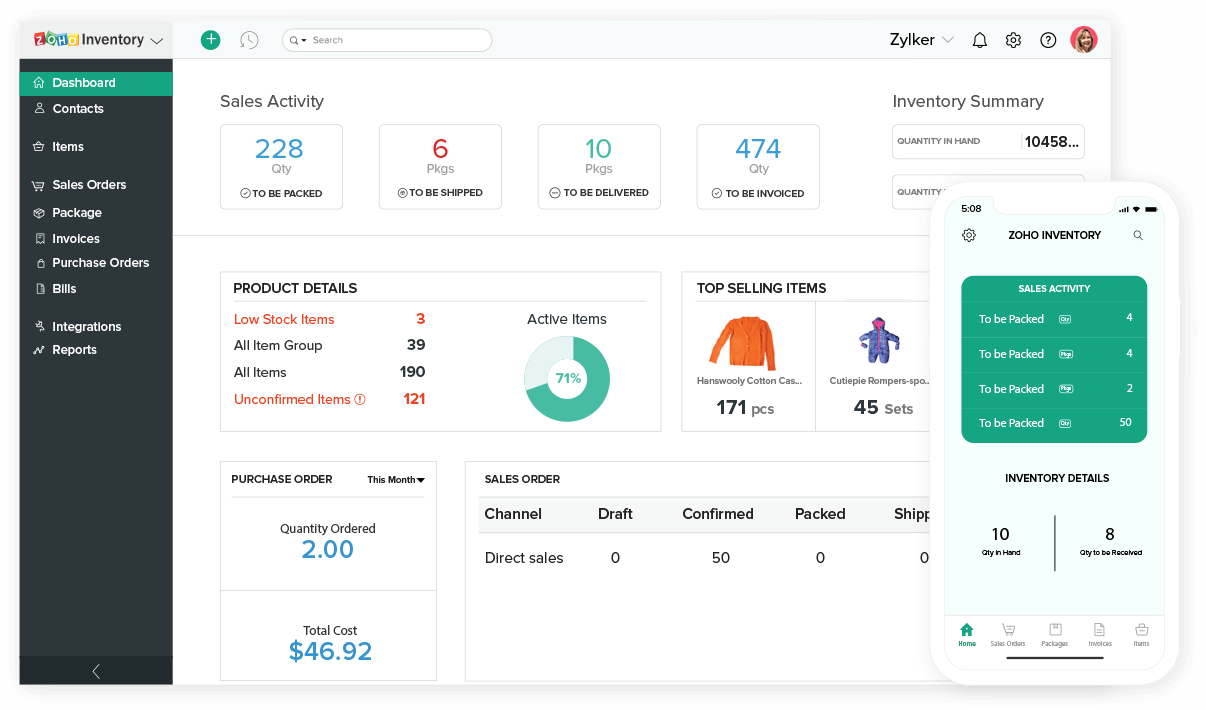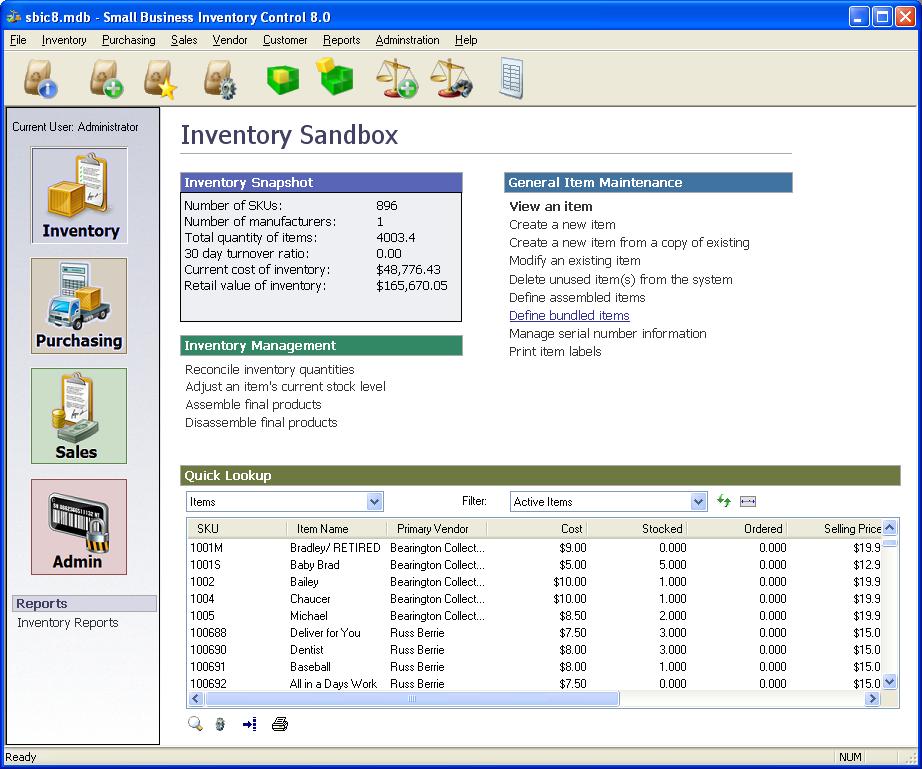In today’s competitive business landscape, small businesses need robust tools to streamline their operations and optimize their inventory management. Small business software with inventory capabilities provides a comprehensive solution to help businesses track, manage, and analyze their inventory efficiently, leading to improved profitability and customer satisfaction.
This innovative software empowers businesses to automate inventory processes, gain real-time visibility into stock levels, and make informed decisions based on accurate data. By leveraging the power of technology, small businesses can enhance their inventory management practices, reduce waste, and drive growth.
Software Features: Small Business Software With Inventory
Small business software with inventory management capabilities offers essential features that streamline operations, improve efficiency, and enhance profitability. By utilizing software for inventory tracking and management, businesses can:
- Centralize inventory data:Track inventory levels across multiple locations, warehouses, and channels in real-time.
- Automate inventory processes:Reduce manual errors and save time by automating tasks such as stock replenishment, order fulfillment, and inventory counting.
- Improve inventory accuracy:Ensure inventory data is up-to-date and accurate, minimizing discrepancies and stockouts.
- Optimize inventory levels:Determine optimal inventory levels to avoid overstocking or stockouts, reducing carrying costs and improving cash flow.
- Enhance customer service:Provide accurate and timely inventory information to customers, improving order fulfillment and satisfaction.
Specific Software Solutions
Numerous software solutions offer inventory management features tailored to the specific needs of small businesses. Some popular options include:
- QuickBooks Online:A cloud-based accounting software that offers inventory management capabilities, including stock tracking, order fulfillment, and reporting.
- Zoho Inventory:A cloud-based inventory management system that provides real-time inventory tracking, barcode scanning, and multi-location management.
- Shopify:An e-commerce platform that offers inventory management features such as stock synchronization, order fulfillment, and sales tracking.
- NetSuite:A comprehensive ERP software that includes inventory management capabilities, such as demand forecasting, production planning, and warehouse management.
Inventory Management
Inventory management is a crucial aspect of small business operations. Effective inventory management helps businesses track their stock levels, optimize inventory levels, and reduce waste. With the help of inventory management software, businesses can automate these processes and gain valuable insights into their inventory performance.One of the primary methods for managing inventory using software is through the use of inventory tracking systems.
These systems allow businesses to keep a real-time record of their inventory levels, including the quantity, location, and status of each item. This information can be accessed by authorized personnel at any time, providing greater visibility and control over the inventory.
Integration with Other Systems
Small business software with inventory management capabilities can seamlessly integrate with other business systems, enhancing overall operational efficiency and data accuracy. By connecting with accounting, CRM, and e-commerce platforms, businesses can streamline their workflows and gain a comprehensive view of their operations.
Accounting Integration
- Automated Data Transfer:Eliminates manual data entry, reducing errors and saving time.
- Real-time Updates:Ensures that accounting records reflect inventory changes immediately.
- Improved Financial Reporting:Provides accurate and up-to-date financial statements based on real-time inventory data.
CRM Integration
- Enhanced Customer Service:Provides sales representatives with real-time inventory information, enabling them to better serve customers.
- Personalized Marketing:Allows businesses to tailor marketing campaigns based on customer purchase history and inventory availability.
- Improved Sales Forecasting:Enables businesses to forecast sales more accurately by considering inventory levels and customer demand.
E-commerce Integration, Small business software with inventory
- Automated Order Fulfillment:Automatically updates inventory levels and processes orders based on e-commerce sales.
- Real-time Inventory Display:Provides customers with up-to-date inventory information, enhancing the shopping experience.
- Improved Customer Communication:Sends automated notifications to customers regarding order status, inventory availability, and delivery updates.
Software Examples
Several software solutions offer seamless integration with other business systems, including:
- NetSuite:Provides an integrated suite of business applications, including inventory management, accounting, CRM, and e-commerce.
- Sage Intacct:Offers a cloud-based accounting system that integrates with inventory management software from third-party providers.
- Shopify:An e-commerce platform that integrates with inventory management systems, allowing businesses to manage inventory across multiple sales channels.
Reporting and Analytics
Small business software with inventory management capabilities provides robust reporting and analytics features to help businesses track their inventory levels, sales performance, and other key metrics. These reports and analytics can help businesses make informed decisions about their inventory management strategies, optimize their operations, and increase their profitability.
The types of reports and analytics available in small business software with inventory management typically include:
- Inventory reports:These reports provide a detailed overview of a business’s inventory levels, including the quantity of each item in stock, the value of the inventory, and the turnover rate.
- Sales reports:These reports track sales performance over time, including the number of units sold, the total sales revenue, and the average sales price.
- Profitability reports:These reports analyze a business’s profitability by tracking the cost of goods sold, gross profit, and net profit.
- Customer reports:These reports provide insights into customer behavior, including the number of customers, the average order value, and the customer lifetime value.
These reports and analytics can help businesses make informed decisions about their inventory management strategies in several ways. For example, businesses can use inventory reports to identify slow-moving items that may need to be discounted or sold off. They can use sales reports to track sales trends and identify opportunities for growth.
And they can use profitability reports to analyze their profit margins and identify areas where they can improve their efficiency.
In addition to the standard reports listed above, many small business software with inventory management also offers advanced analytics features, such as:
- Predictive analytics:These analytics can help businesses forecast future demand for their products and optimize their inventory levels accordingly.
- Scenario planning:This feature allows businesses to create and compare different inventory management scenarios to see how they would impact their profitability.
- Data visualization:This feature allows businesses to visualize their data in charts and graphs, making it easier to identify trends and patterns.
Reporting and analytics are essential tools for small businesses that want to optimize their inventory management strategies and increase their profitability. By leveraging the data and insights provided by these features, businesses can make informed decisions that will help them grow their business and achieve their goals.
Security and Compliance

Security and compliance are crucial for small business software with inventory management. Data breaches can lead to financial losses, reputational damage, and legal consequences. Software providers must take measures to protect data and ensure compliance with regulations.
To ensure the security of their inventory data, businesses should:
- Choose software that uses encryption to protect data both at rest and in transit.
- Implement strong access controls to limit who can access inventory data.
- Regularly back up inventory data to a secure location.
- Train employees on data security best practices.
Pricing and Support

Selecting small business software with inventory management involves considering pricing models and support options. Different providers offer varied pricing structures, and the choice depends on the business’s budget and requirements.
Pricing Models
- Subscription-based:A monthly or annual fee provides access to the software and its features.
- Per-user pricing:Each user accessing the software incurs a separate fee.
- Tiered pricing:Different levels of features and functionality are offered at varying price points.
- Volume-based pricing:Discounts are provided for larger volumes of transactions or inventory items.
Support Options
Software providers offer various support channels to assist businesses:
- Email and phone support:Direct communication with support staff for immediate assistance.
- Online knowledge base:Self-help resources, documentation, and troubleshooting guides.
- Live chat:Real-time support through a chat interface.
- Community forums:Discussion platforms where users can connect and share knowledge.
- Training and onboarding:Guidance and assistance with software implementation and usage.
Choosing the Right Software
To select the appropriate software, businesses should consider their:
- Budget:Determine the available financial resources for software acquisition and ongoing support.
- Support needs:Assess the level of assistance required, considering the size of the business and its technical capabilities.
- Scalability:Consider the potential for future growth and whether the software can accommodate increasing inventory and transaction volumes.
Last Word

In conclusion, small business software with inventory management is an indispensable tool for businesses seeking to streamline their operations, optimize their inventory levels, and gain a competitive edge. By embracing these software solutions, businesses can unlock the potential for increased efficiency, reduced costs, and improved customer service, ultimately driving their success in the ever-evolving business environment.
FAQ Overview
What are the key benefits of using small business software with inventory management?
Small business software with inventory management offers numerous benefits, including improved inventory accuracy, reduced waste, optimized stock levels, enhanced customer service, and increased profitability.
How does small business software with inventory management help businesses save time?
By automating inventory processes, such as tracking stock levels, generating purchase orders, and managing inventory adjustments, small business software with inventory management frees up valuable time for business owners and employees, allowing them to focus on more strategic tasks.
What types of reports can I generate using small business software with inventory management?
Small business software with inventory management typically offers a range of reports, including inventory reports (showing stock levels, stock value, and stock movements), sales reports (providing insights into sales trends and customer behavior), and purchase reports (detailing purchase history, supplier performance, and spending patterns).
